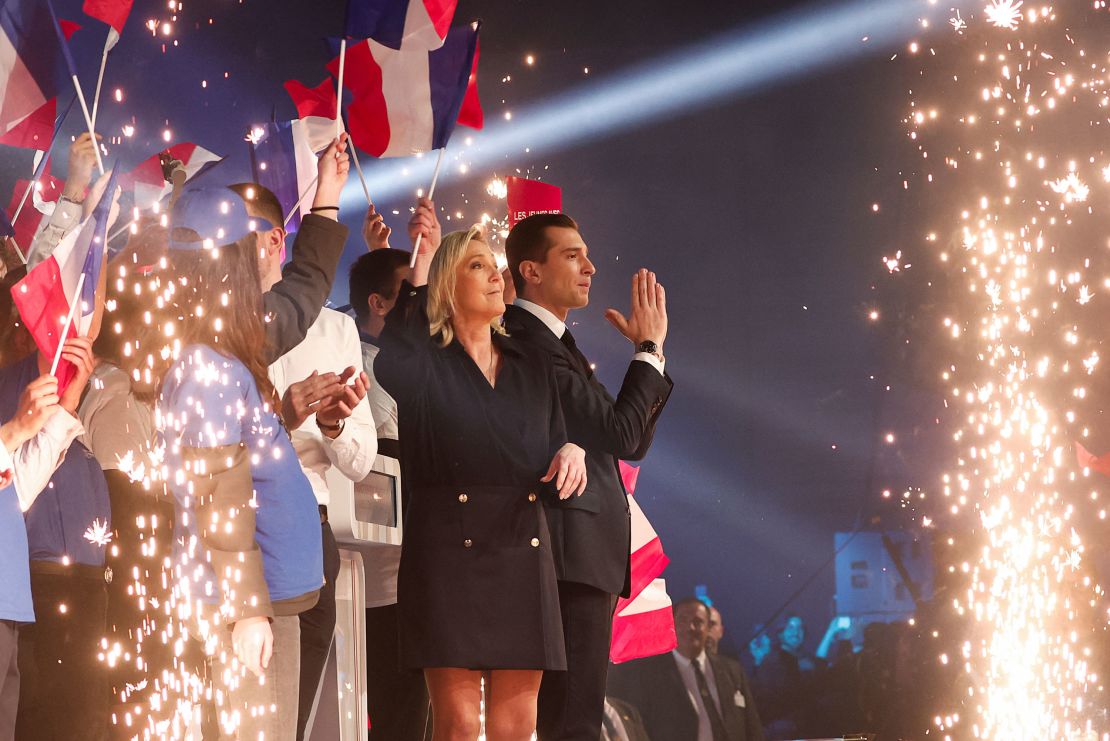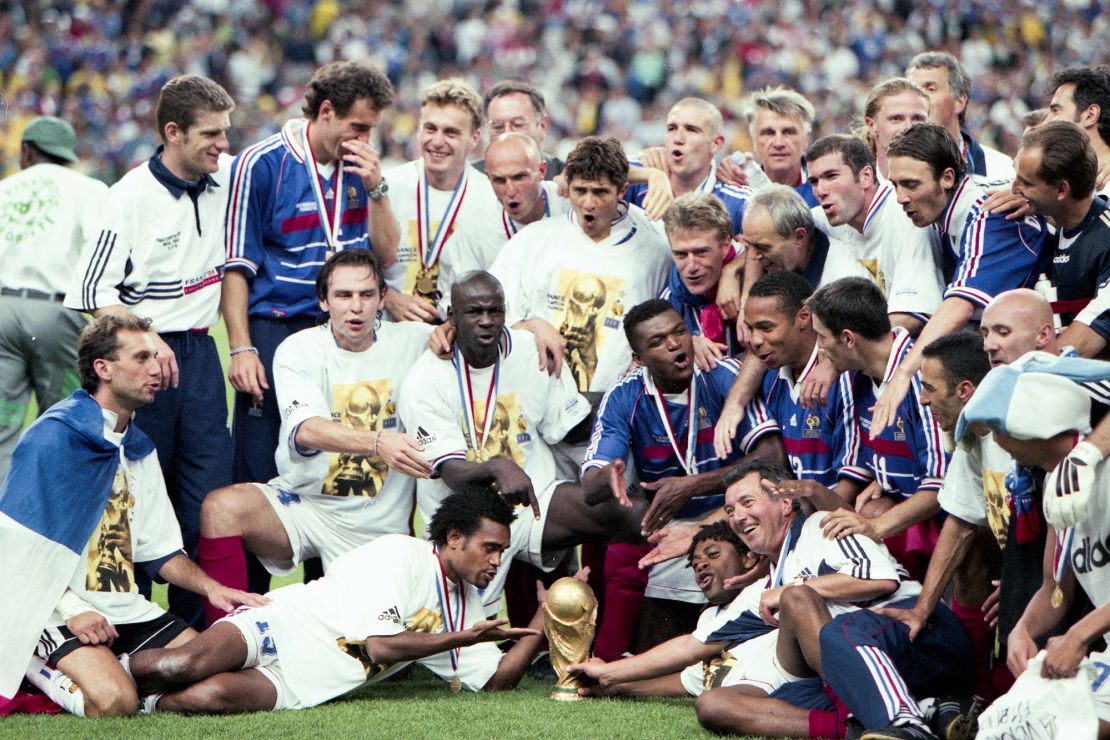
This article is more than
1 year old
Editor’s Note: Adam Plowright is the author of “The French Exception: Emmanuel Macron — The Extraordinary Rise and Risk.” The views expressed in this commentary are his own. Read more CNN Opinion.
French soccer superstar Kylian Mbappé made a dramatic foray into the country’s election campaign this week, but don’t expect the striker to have an influence on the outcome.
The captain of “Les Bleus” and one of the world’s most famous soccer players made clear his political preferences for the first time this week while on national duty at the UEFA Euro championship in Germany.
“Today we can all see that extremists are very close to winning power,” he said in comments Sunday that echoed a warning from teammate Marcus Thuram who urged the French people “to fight every day” to stop the far right from winning power.
“I don’t want to represent a country that does not correspond to my values, to our values,” Mbappé added, calling on the country to support “diversity and tolerance.”
The Paris-born 25-year-old, who has family roots in Cameroon and Algeria, is one of France’s best-loved figures and was one of the world’s highest paid athletes even before his recent mega-move to Real Madrid.
His intervention made him the biggest talking point in the country ahead of the snap two-round parliamentary election called by President Emmanuel Macron for June 30 and July 7.
The far-right National Rally party of anti-immigration leader Marine Le Pen is leading in the polls, and most pundits suspect her populist movement has never come this close to power.
Mbappé’s statement reflects the sense of urgency — panic, even — felt by those who fear a far-right government in France for the first time since World War II. Adam Plowright
Mbappé’s statement reflects the sense of urgency — panic, even — felt by those who fear a far-right government in France for the first time since World War II.
But while his ability to sway a football game is not in doubt, there are reasons to question Mbappé’s power as a political activist.
The biggest cause for skepticism is a clear trend in Western democracies, seen from the United States to France.
Whereas young people once reliably voted to the left of their parents, more and more of them are turning to conservative, anti-immigration parties.
In the European Parliament elections earlier this month, which led a defeated Macron to call for parliamentary polls, Le Pen’s party won 26% of votes from the under-25s, up 11 points since the last election in 2019, according to a poll by Ipsos.
In the last round of the presidential election in 2022, Le Pen won nearly half of votes cast by those aged 25-34, according to the same polling company (there isn’t an official breakdown of the actual vote).
There are various theories to explain the shift.
One is that that in a world of such uncertainty for young people, of climate change and mass migration, of vast technological change, French-first nationalism offers a sense of reassurance.

Unable to afford property and worried about their job prospects, some are drawn to the politics of anti-globalization, having written off the discredited ideas of their parents’ generation.
Their memories are shorter too, making them less likely to be swayed by the association of modern far-right parties with their overtly racist and antisemitic forerunners in 20th-century Europe.
While Mbappé certainly has star appeal and millions of fans, Le Pen too has her own asset in prime ministerial candidate Jordan Bardella, just 28, who appears to have his own magnetism for millennial voters.
Telegenic and self-confident, Bardella comes from an immigrant background himself and connects with today’s TikTok and YouTube generation in slick videos showing him eating Haribo candy before making speeches or drinking beer while watching TV.
“I’m a little embarrassed to see these athletes … give lessons to people who can no longer make ends meet, who no longer feel safe, who do not have the chance to live in neighborhoods overprotected by security agents,” he said tartly of Mbappé’s comments.
The remarks by Mbappé and Thuram — whose Guadeloupe-born father Lilian helped France win the 1998 World Cup — also risk stirring up France’s long fraught relationship with its national team, which has been wrapped up with questions around race and identity.

The famed 1998 World Cup-winning squad was celebrated as an expression of French diversity — the so-called “black-blanc-beur” (Black-White-North African) team containing Marcel Desailly, Zinedine Zidane and current national coach Didier Deschamps.
But that always felt like an imposed narrative in a country where the idea of multiculturalism is still widely rejected as an Anglo-American import.
In 2006, Marine Le Pen’s father, far-right patriarch Jean-Marie Le Pen, suggested there were too many “players of color” on the national side.
Marine too has questioned the patriotism of players from diverse racial and ethnic backgrounds and called the team “a bunch of badly educated kids” in 2013.
The current squad is majority non-White, with many of its leading lights, like Mbappé, drawn from the suburbs around major cities that are demonized by conservatives as hotbeds of crime and Islamism.
While millions will cheer them on at the Euros, they serve as a visible reminder of the country’s changing demographics — an issue which animates voters for the National Rally like no other.
Mbappé might indeed persuade some young voters to turn out on June 30 — a majority abstained in the European and last parliamentary polls in 2022 — but they are unlikely to swing constituencies that will decide the balance of the next parliament.
On the pitch, he suffered a broken nose in his first game of the Euros. Off it, expressing his political views will mean his popularity in France will also likely take a blow.
But at a crossroads moment for the nation, no one can accuse him of lacking courage.